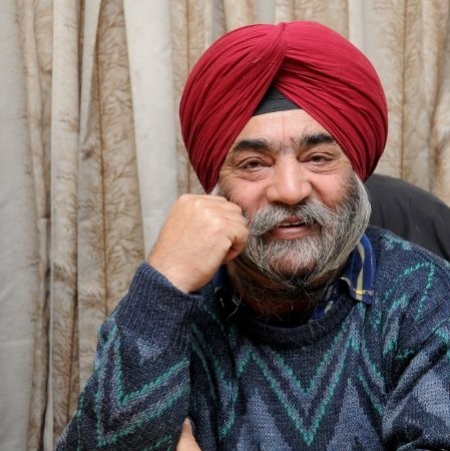15

Today’s Edition
New Delhi, 15 February 2024

Prabhjot Singh
Journalists are the eyes and ears of a society. They also have a right to dignified life. They need to be paid enough so that they can carry out their duties in a fair, free, and professional manner.
Over the years things have changed so much that this noble profession, equated or treated as fourth Estate or a pillar of democracy has started crumbling.
Journalists are at the whims and fancies of not only their employers, but also the governments, both provincial and central.
Those in power are increasingly becoming intolerant, refusing to ingest any opposition or criticism. There was a phase after the country fought its way out of the emergency regime of the then Prime Minister Indira Gandhi.
Media started playing its role in sustaining democracy, by upholding the basic values as enshrined in the Constitution.
To ensure dignified life to those working for media houses, the Union Government introduced laws, by setting up Wage Boards from time to time for Promulgation of laws that used to govern work environment of both journalists and non-journalists.
During my tenure as a journalist with The Tribune that spanned over nearly four decades, came Palekar, Bachawat and Manisana Wage Board awards and Majithia Wage Board was set up.
The Wage Board recommendations used to be dotted with flaws as many genuine claims of working journalists were ignored. They were denied promotions or higher grades on one pretext or the other.
Strange as it may sound, each time the Wage Board recommendations were implemented, I had no choice but to opt for the previous Wage Board until new recommendations were of any benefit to me.
It was not me alone but many others who either did not benefit or their gains were nominal. One such example was Pradeep Mathur, one of the finest and well qualified Sub Editor, The Tribune had those times. After serving the organisation for 10 years, he left without ever getting recognised for his work, qualifications, and contributions. He was one of the pioneers of The Tribune Employees Union and raised voice against some of the repressive measures of the then Tribune management, especially its General Manager, Rulia Ram Sharma.
Within four years of leaving The Tribune, Pradeep Mathur was not only promoted as Resident Editor of Pioneer, another top English daily, but also served in between as a Special Correspondent covering Parliament besides his brief stints as officiating News Editor and Assistant Editor.
He had to spurn thee offer of Resident Editor, Hindustan Times for its Patna edition, as his late wife, Rama Saharia, was then employed in Western Uttar Pradesh. (She died early this month after a brain stroke.Our tributes to the departed soul for she stood by Pradeep Mathur through every thick and thin.)
Pradeep left newspaper industry to join Indian Institute of Mass Communication (IIMC) as Associate Professor in 1989. When he retired, he was the senior most Professor of Journalism in the country.
Passionate about journalism, he is now running a news web portal, mediamap.co.in, holding aloft the professional ideals besides serving as a role model for the new breed of journalists that understands the Governments are no more serious about their wages and security at workplace.
The corporate culture has now gradually controlled the media industry, thanks to continuous apathy of the State. No new Wage Board has been set up. The number of those governed by Wage Boards in the Indian Media industry can now be counted on finger tips.


















































































































































































































































































































































































































































































































































































































































































































































































































































































































































































































































































































































































































































































































































































































































































































































































































































































